Fine Jewelry Appraisals: Complete Guide to Professional Valuation Services
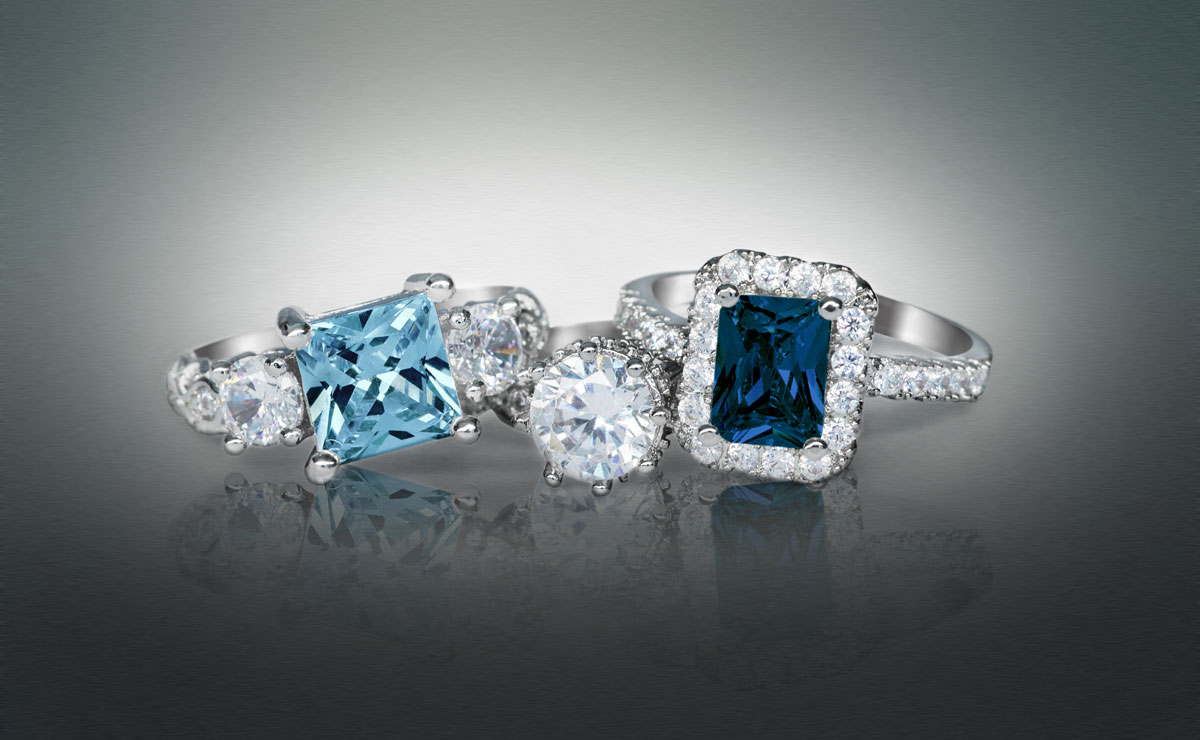
Your grandmother’s diamond ring, that anniversary necklace, or the vintage watch you inherited these precious pieces represent far more than their monetary worth. They carry emotional significance while also serving as valuable financial assets that deserve proper protection. Whether made with diamonds, gold, or other precious materials, these items are commonly appraised to determine their value. Understanding fine jewelry appraisals becomes essential when you need to document, insure, or establish the value of these treasured items.
Fine jewelry appraisals provide the professional documentation required to protect your investments and ensure you receive appropriate compensation should loss or damage occur. Whether you’re seeking insurance coverage, planning your estate, or simply want to understand what you own, having your jewelry appraised for insurance or documentation purposes ensures you receive the expertise and credibility that insurance companies and legal institutions require.
This comprehensive guide explores everything you need to know about fine jewelry appraisals, from understanding different types of valuations to choosing qualified professionals who can provide accurate, reliable assessments of your precious pieces. Fine Jewelry Appraisals has been a trusted provider of jewelry appraisal services in Central Florida since 2001, offering expertise and experience to meet diverse customer needs.
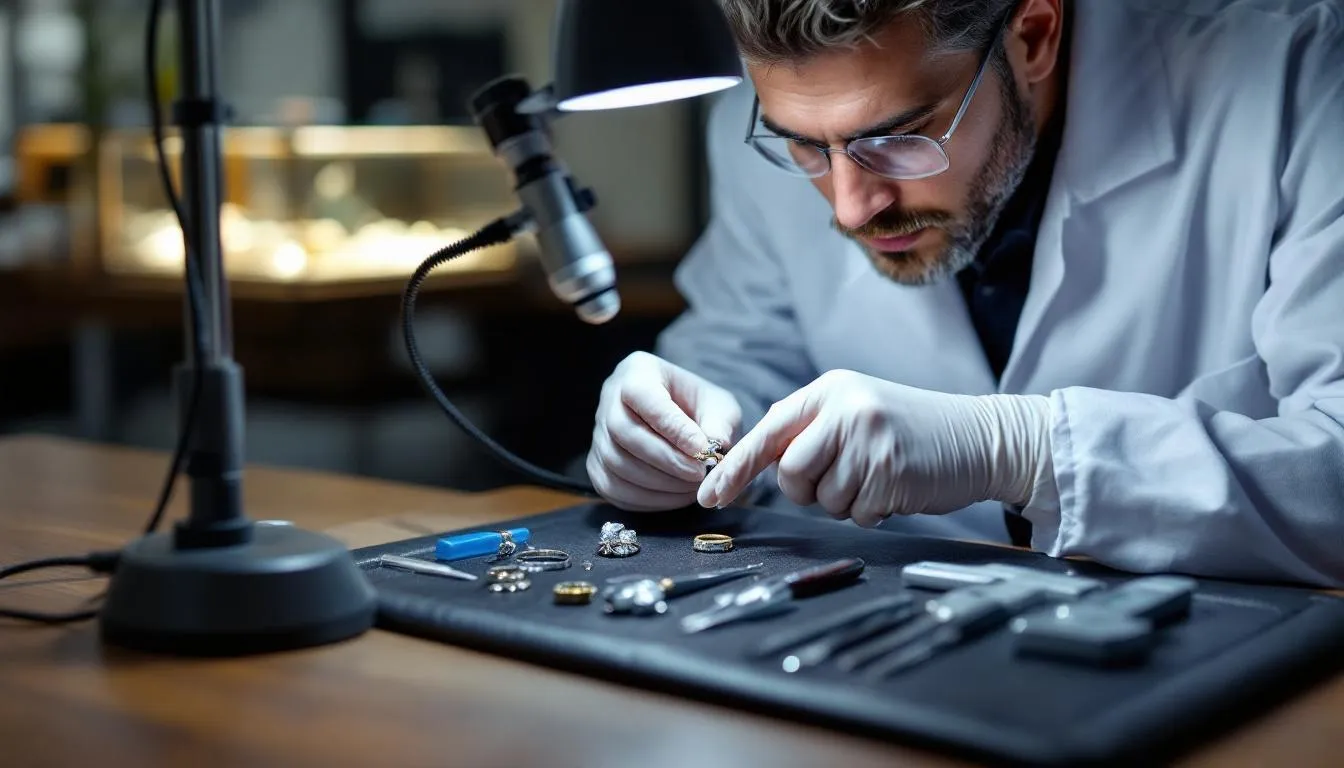
What Are Fine Jewelry Appraisals
A jewelry appraisal is a detailed professional document that describes and assesses the quality, authenticity, and value of jewelry items. Unlike simple estimates or quick evaluations, these comprehensive reports provide thorough documentation that serves as an official record of your piece’s characteristics and worth. Appraisal documents should include weights, measurements, and a detailed narrative description of each item to ensure accuracy and completeness.
Professional jewelry appraisals differ significantly from grading reports issued by gemological laboratories. While grading reports focus exclusively on documenting the quality characteristics of gemstones – such as a diamond’s cut, color, clarity, and carat weight – appraisals go further by providing value opinions based on current market conditions and the specific purpose of the evaluation. The ‘4Cs’—Cut, Color, Clarity, and Carat Weight—are the primary factors for assessing gemstone quality. Grading reports and appraisals can be performed on both mounted and unmounted gemstones, ensuring accurate identification and assessment regardless of whether the gemstone is set in jewelry or loose. Qualified jewelry appraisers must also understand manufacturing techniques to provide accurate and reliable evaluations.
Key Components of Professional Appraisals
Every thorough jewelry appraisal includes both objective facts and professional assessments:
Visible Facts and Measurements:
- Precise weight measurements of metals and gemstones
- Detailed description of materials used in construction
- Documentation of any visible markings, hallmarks, or signatures
- Physical dimensions and construction details
- Style or design of the piece
- Photographic evidence from multiple angles
Professional Quality Assessments:
- Gemstone quality evaluation using industry-standard criteria
- Assessment of craftsmanship and design execution
- Condition evaluation noting any damage or wear
- Authentication of materials and identification of treatments
- Market value determination based on current pricing data
Primary Purposes of Fine Jewelry Appraisals
The specific purpose of your appraisal significantly influences both the methodology used and the final valuation provided. Most customers seek appraisals for these essential purposes:
- Insurance Coverage: Establishing replacement value for comprehensive protection against loss, theft, or damage, with a specific value assigned to the jewelry for coverage purposes
- Estate Planning: Documenting assets for inheritance distribution and tax planning purposes
- Inheritance Documentation: Providing heirs with official records of inherited jewelry values
- Ownership Protection: Creating legal documentation that proves ownership and establishes provenance
- Legal Matters: Appraisals are crucial for legal matters like divorce settlements or charitable donations, ensuring accurate valuations for these specific purposes.
Types of Fine Jewelry Appraisals
Different situations require different types of valuations, each serving specific needs and following distinct methodologies. The type of appraisal required may vary depending on the intended use or specific circumstances. Understanding these variations helps ensure you receive the appropriate type of appraisal for your particular circumstances.
Insurance Replacement Appraisals
Insurance appraisals represent the most common type of jewelry valuation service. These documents establish realistic retail replacement costs that insurance companies use to determine coverage limits and settlement amounts. The majority of appraisals done today are for insurance replacement purposes. The appraiser researches current market prices for comparable items, considering quality, craftsmanship, and availability.
Insurance replacement values typically reflect what you would pay to replace your item with something of like kind and quality from a retail jeweler today. This approach ensures adequate coverage while preventing over-insurance that could lead to inflated premiums.
Estate Appraisals
Estate appraisals determine fair market value for inheritance and estate planning purposes. These valuations follow strict guidelines established by the Internal Revenue Service and focus on the price that willing buyers and sellers would agree upon in the current marketplace. Fair market value is generally required for charitable donations and estate appraisals.
Estate valuations often differ significantly from insurance replacement values because they reflect actual market transactions rather than retail replacement costs. This distinction becomes crucial for tax planning, inheritance distribution, and legal proceedings where accurate market value documentation is required.
Pre-Purchase and Post-Purchase Appraisals
Pre-purchase appraisals help buyers verify the authenticity, quality, and value of jewelry before completing a transaction. These evaluations provide independent confirmation that items purchased match their descriptions and represent fair value at the agreed-upon price. Appraisers do not buy or sell jewelry, which ensures their objectivity and unbiased valuations, as emphasized by Fine Jewelry Appraisals.
Post-purchase appraisals typically occur within days or weeks of buying jewelry, providing official documentation for insurance purposes while memories of the purchase remain fresh. Many jewelers offer complementary post-purchase appraisal services for items purchased from their store. Additionally, jewelry appraisal services often include gemstone identification reports to ensure accurate documentation of your purchase.
Fair Market Value Appraisals
Fair market value appraisals establish current market worth for resale purposes, determining what you might reasonably expect to receive if selling your jewelry in today’s marketplace. These valuations consider factors such as current demand, market conditions, and typical profit margins in secondary markets. Fair market value appraisals reflect an actual selling price between a willing buyer and seller, making them essential for accurate resale assessments.
Fair market values generally fall below insurance replacement values because they reflect wholesale or secondary market pricing rather than retail replacement costs. This type of appraisal proves valuable when considering whether to sell, trade, or maintain items in your collection.
Hypothetical Appraisals
Hypothetical appraisals assess value under specific market conditions or scenarios that may differ from current circumstances. These specialized evaluations might consider historical values, projected future worth, or value in specific geographic markets where conditions vary from local norms.
The Professional Appraisal Process
Professional jewelry appraisals follow established procedures designed to ensure accuracy, security, and comprehensive documentation. Understanding this process helps you prepare for your appointment and ensures you receive the thorough evaluation your valuable pieces deserve.
In-Person Inspection Requirements
Legitimate appraisal services require in-person inspection of jewelry while the owner remains present throughout the evaluation. This security measure protects both parties and ensures that items never leave your sight during the assessment process. Appraisals can be completed on-site or in a designated location by appointment, providing flexibility and convenience for customers.
The appraiser will examine each piece using specialized equipment including jeweler’s loupes, digital scales, gemological microscopes, and testing devices. You’ll have the opportunity to observe the evaluation process and ask questions about the methodologies being employed.
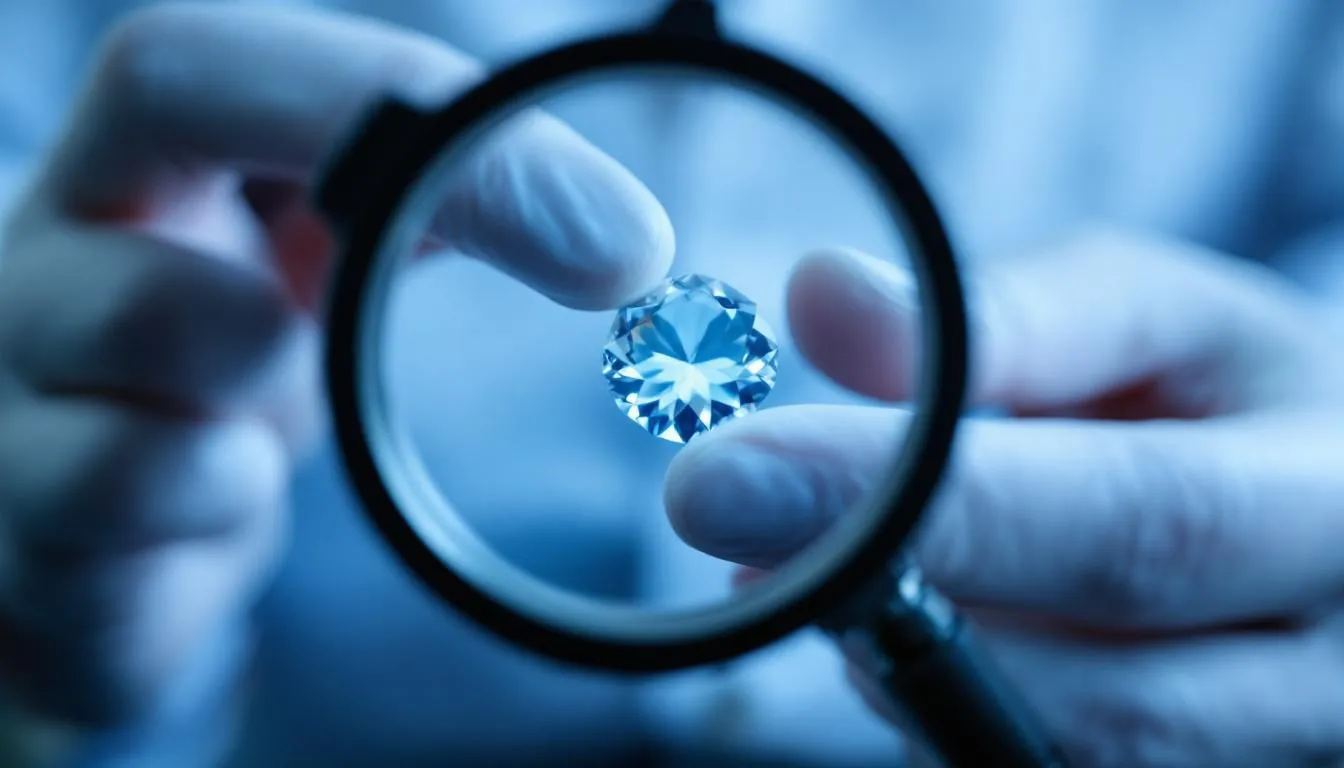
Detailed Documentation Process
Professional appraisal services document every aspect of your jewelry through systematic evaluation:
Physical Measurements and Testing:
- Precise weight measurements using calibrated digital scales
- Dimensional measurements of the overall piece and individual components
- Metal type identification and purity testing
- Gemstone identification using appropriate gemological instruments
- Gemstone quality evaluation following established grading standards
- Assessment of cut quality, proportions, and finishing
- Condition evaluation noting any damage, wear, or previous repairs
- Craftsmanship analysis considering construction quality and design execution
Market Research and Valuation:
- Research of comparable sales and current market pricing
- Analysis of replacement costs from appropriate retail sources
- Consideration of factors affecting value such as brand, provenance, or rarity
- Application of appropriate valuation methodology based on appraisal purpose
Photography and Written Descriptions
Comprehensive documentation includes high-resolution photography from multiple angles, capturing both overall appearance and specific details such as hallmarks, signatures, or unique characteristics. These images become part of your permanent appraisal record and prove invaluable for insurance claims or identification purposes.
Written descriptions provide detailed technical specifications using industry-standard terminology that insurance companies and legal professionals recognize. This documentation includes everything from metal purity and gemstone characteristics to construction techniques and condition assessments.
Typical Turnaround Times
Most professional appraisal services complete standard evaluations within five business days of your appointment. This timeframe allows adequate time for thorough research, market analysis, and preparation of comprehensive documentation.
During peak periods such as holiday seasons or following major jewelry shows, turnaround times may extend slightly. Complex pieces requiring extensive research or consultation with specialists may also require additional time to ensure accuracy.
Electronic Delivery Options
Modern appraisal services typically provide completed valuations through secure electronic delivery, ensuring you receive your documentation promptly while maintaining backup copies for your records. Many professionals also provide hard copies upon request or for specific legal requirements.
Appraiser Qualifications and Credentials
The jewelry industry maintains rigorous professional standards for qualified appraisers, ensuring that customers receive accurate, reliable valuations from knowledgeable professionals. Understanding these qualifications helps you identify reputable appraisal services that meet industry standards.
GIA Graduate Gemologist Diploma Requirements
The Gemological Institute of America’s Graduate Gemologist (G.G.) diploma represents the minimum required gemological credential for professional jewelry appraisers. This comprehensive program covers gemstone identification, grading techniques, jewelry construction, and market analysis through rigorous coursework and hands-on training.
GIA graduate gemologists demonstrate proficiency in using specialized equipment, understanding gemstone characteristics, and applying consistent grading standards. This foundation ensures that appraisers possess the technical knowledge necessary for accurate gemstone evaluation and identification.
Professional Memberships and Affiliations
Reputable jewelry appraisers maintain memberships in established professional organizations that uphold ethical standards and continuing education requirements:
National Association of Jewelry Appraisers (NAJA) provides ongoing education, certification programs, and ethical guidelines for professional appraisal practice. Members commit to following a strict code of ethics, which is essential for ensuring transparency, accountability, and integrity in appraisal services, as well as participating in regular continuing education.
American Gem Society maintains strict membership requirements and promotes excellence in gemological education and professional conduct. Their appraiser members undergo rigorous testing and maintain current knowledge of industry developments.
Jewelers of America represents jewelry professionals across all sectors of the industry, providing resources, education, and advocacy for ethical business practices.
Accredited Senior Appraiser Designations
Advanced certifications such as Accredited Senior Appraiser (ASA) designations demonstrate commitment to professional excellence and adherence to uniform standards of professional appraisal practice. These credentials require extensive experience, continuing education, and demonstrated competency in appraisal methodology.
USPAP Compliance Requirements
Professional appraisers must comply with Uniform Standards of Professional Appraisal Practice (USPAP), which establish ethical and performance standards for the appraisal profession. These standards ensure consistency, reliability, and professional accountability in appraisal services.
USPAP compliance requires ongoing education, adherence to established methodologies, and maintenance of professional records. Appraisers must update their knowledge regularly and follow prescribed procedures for different types of valuations.
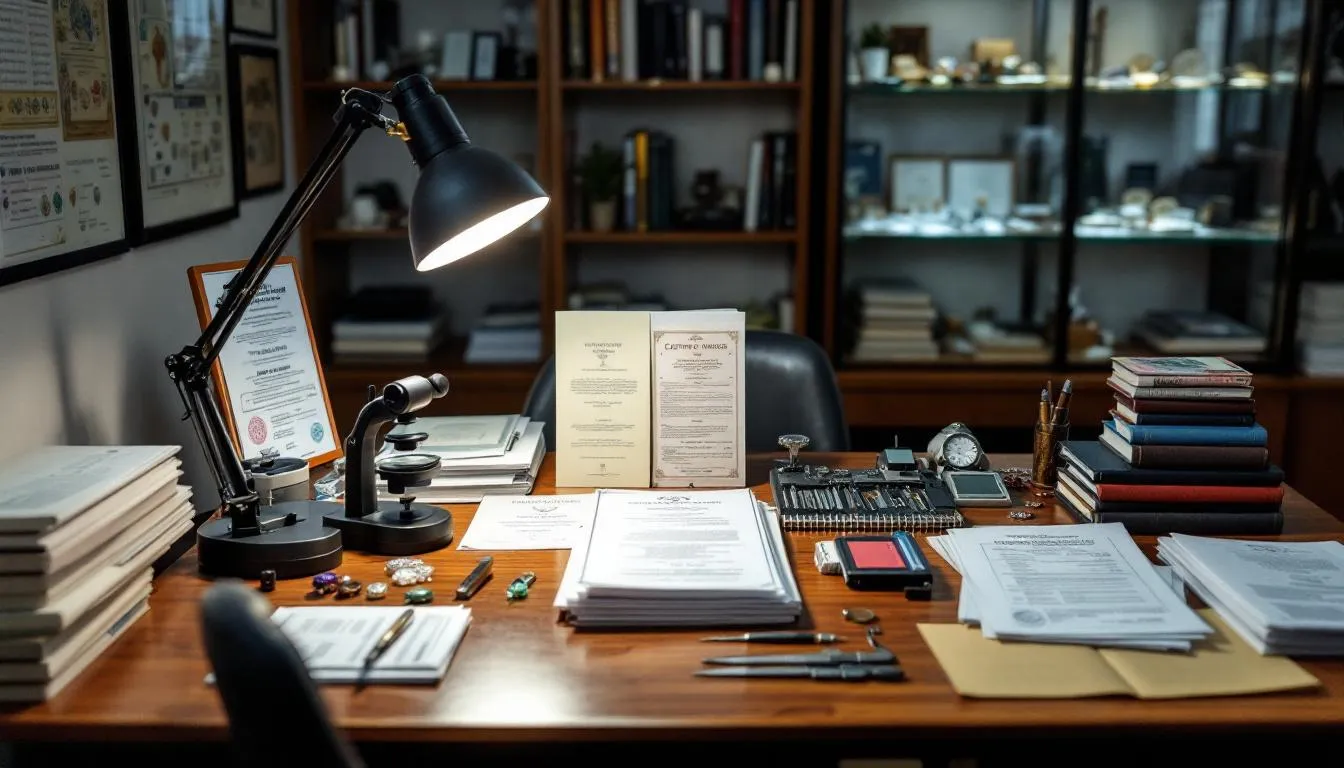
When You Need a Fine Jewelry Appraisal
Understanding when to seek professional appraisal services helps ensure adequate protection for your valuable pieces while avoiding unnecessary expenses for items that may not require formal documentation. A selection of jewelry items, especially those with significant value or unique characteristics, may warrant appraisal to determine their true worth. Customers are advised to obtain detailed appraisals for items that are difficult to replace, as these appraisals provide essential documentation for insurance and other purposes.
Value Thresholds for Professional Appraisals
Most insurance companies and industry professionals recommend formal appraisals for jewelry items valued over $1,000 to $2,000. This threshold reflects the point where professional documentation becomes cost-effective relative to the item’s value and replacement cost. Appraisals should be updated every five years to reflect market changes.
Items below this threshold may receive adequate protection through homeowner’s or renter’s insurance policies without requiring separate jewelry coverage. However, pieces with high sentimental value or unique characteristics may warrant appraisal regardless of monetary value.
New Jewelry Purchases
Recent jewelry purchases often require professional appraisal for insurance documentation, particularly when the purchase price exceeds your existing coverage limits. Many insurance companies require appraisals within 30 to 90 days of acquisition to establish coverage.
Even when jewelers provide initial valuations, independent third-party appraisals offer additional credibility and may reveal important details about construction, quality, or market value that affect insurance coverage decisions.
Inherited and Gifted Jewelry
Inherited jewelry frequently requires professional appraisal to establish current market value, particularly when the pieces haven’t been evaluated in several years. Estate settlement, tax planning, and inheritance distribution often depend on accurate, current valuations.
Gifted jewelry may also require appraisal for insurance purposes, especially when the gift represents significant value or when the recipient wants to ensure adequate protection for the generous present.
Antique and Vintage Pieces
Antique and vintage jewelry present unique challenges that require specialized knowledge and market research. These pieces may have value that extends beyond their material components, incorporating factors such as historical significance, maker reputation, or design rarity.
Professional appraisers with expertise in vintage jewelry can identify period characteristics, construction techniques, and market trends that significantly impact valuation. This specialized knowledge ensures accurate assessment of pieces that may not fit standard contemporary grading criteria.
Items with High Sentimental Value
Jewelry with exceptional sentimental significance may warrant professional appraisal even when monetary value falls below typical thresholds. Family heirlooms, engagement rings, and pieces commemorating important life events deserve proper documentation and protection.
Professional appraisals provide peace of mind by ensuring that irreplaceable pieces receive appropriate insurance coverage and that their unique characteristics are properly documented for future reference.
Regular Update Requirements
Jewelry appraisals require regular updates to reflect current market conditions and maintain accurate insurance coverage. Most professionals recommend updating appraisals every three to five years, though significant market fluctuations may necessitate more frequent updates.
Precious metal and gemstone prices fluctuate based on global economic conditions, supply and demand factors, and market speculation. Regular updates ensure that your coverage keeps pace with these changes and that you maintain adequate protection for your investments.
Appraisal Costs and Pricing Structure
Understanding the cost structure for professional jewelry appraisals helps you budget appropriately while ensuring you receive quality service from qualified professionals. Pricing varies based on several factors, but industry standards provide general guidelines for typical fees. Trustworthy appraisers generally charge a flat fee per item or an hourly rate, not a percentage of the appraised value, ensuring transparency and fairness in their pricing.
Starting Fees for Basic Services
Most professional appraisal services charge starting fees of approximately $95 to $100 for basic insurance appraisals of single items. This fee typically covers straightforward evaluations of contemporary jewelry pieces without unusual complexity or extensive research requirements.
Basic appraisal fees include standard documentation, photography, market research, and preparation of comprehensive written reports suitable for insurance purposes. Additional items evaluated during the same appointment often receive discounted pricing.
Free Appraisal Services
Many jewelry retailers provide complementary appraisal services for items purchased from their store, particularly for recent purchases within the past five years. These free appraisals offer value to customers while ensuring that purchased items receive proper insurance documentation.
However, free appraisals may lack the independence and credibility that insurance companies prefer, particularly for high-value items or complex evaluations. Independent third-party appraisals often provide additional confidence and may reveal important details that in-house evaluations might overlook.
Collection Assessment Pricing
Jewelry box assessments for multiple items typically follow hourly pricing structures, often around $100 per hour for comprehensive evaluation of entire collections. This approach proves cost-effective when evaluating numerous pieces simultaneously.
Collection assessments allow appraisers to examine multiple pieces efficiently while providing economies of scale for customers with extensive jewelry holdings. The appraiser can identify which pieces warrant detailed individual documentation and which items might receive abbreviated treatment.
Discounted Rates for Existing Customers
Many appraisal services offer discounted rates for items purchased from their jewelry store, sometimes providing 50% discounts for appraisals of pieces bought from the same retailer. These discounts reward customer loyalty while encouraging proper insurance documentation.
Existing customer discounts may apply to updated appraisals as well, providing ongoing value for customers who maintain relationships with their jewelry providers and update their appraisals regularly as recommended.
Factors Affecting Pricing
Several factors influence appraisal costs beyond the basic service fees:
Number of Items: Multiple pieces evaluated simultaneously often receive volume discounts, making collection assessments more economical than individual item appraisals.
Complexity Requirements: Unusual pieces, antique jewelry, or items requiring extensive research may incur additional fees to cover the extra time and expertise required.
Specialized Expertise: Certain types of jewelry, such as vintage pieces, designer items, or unusual gemstones, may require specialized knowledge that commands premium pricing.
Documentation Requirements: Some situations require enhanced documentation, additional photography, or specific formatting that may affect overall pricing.
Geographic Location: Appraisal fees vary by region, with metropolitan areas typically commanding higher fees than smaller communities due to overhead costs and market conditions.
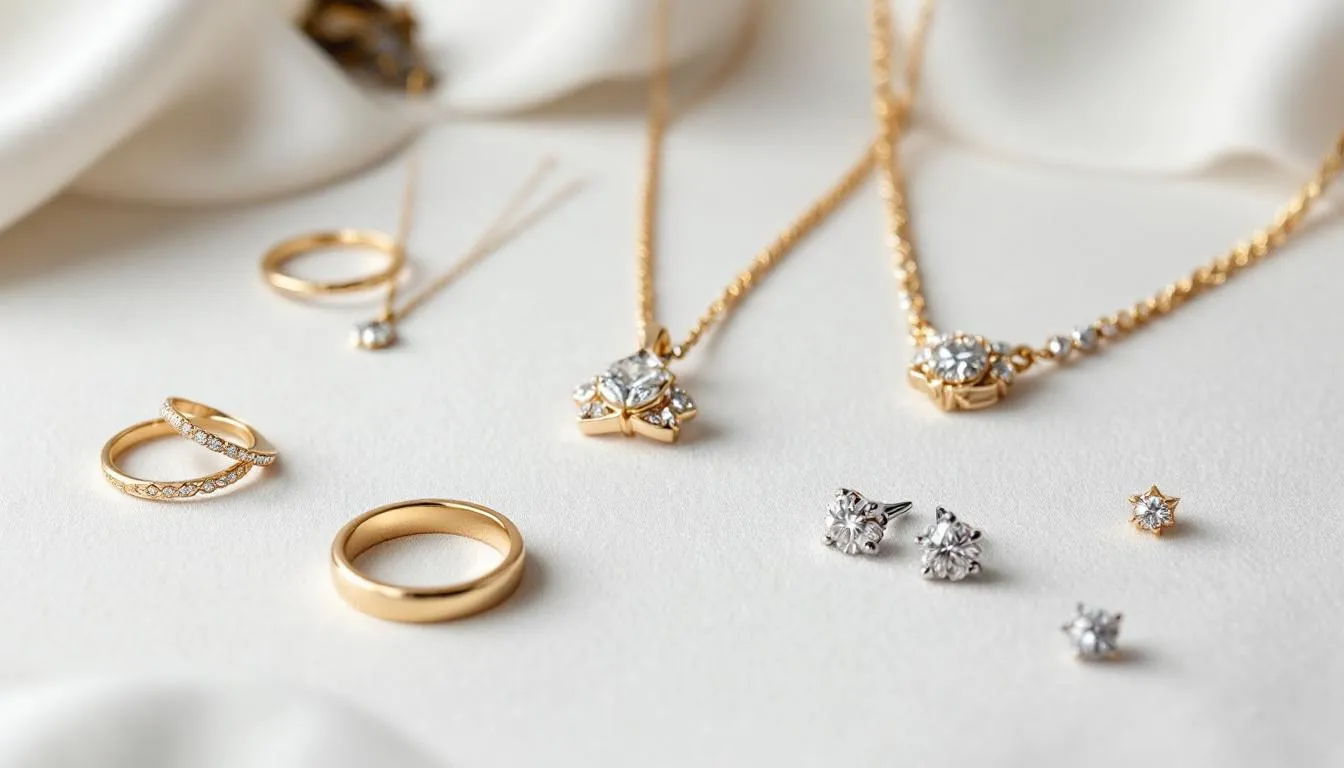
Legal Standards and Ethical Guidelines
The jewelry appraisal industry operates under specific legal standards and ethical guidelines designed to protect consumers and ensure accurate, reliable valuations. Understanding these requirements helps you identify qualified professionals and ensures you receive services that meet established standards.
FTC Regulations and Fair Pricing Requirements
The Federal Trade Commission maintains regulations that prohibit over-valuation of jewelry appraisals, requiring appraisers to provide fair retail selling prices without artificial inflation. These regulations protect consumers from inflated valuations that could result in excessive insurance premiums or unrealistic expectations about item values.
Professional appraisers must base their valuations on legitimate market research and current pricing data rather than inflated estimates designed to satisfy customer expectations or generate higher fees. This requirement ensures that appraisals reflect realistic replacement costs and market values.
Industry Standards for Professional Practice
Professional appraisal practice follows established industry standards that govern methodology, documentation, and ethical conduct. These standards ensure consistency across the profession and provide customers with reliable, comparable services regardless of which qualified appraiser they choose.
Industry standards address everything from equipment calibration and testing procedures to documentation requirements and continuing education obligations. Adherence to these standards demonstrates professional competency and commitment to service quality.
Federal Licensing and Certification Requirements
Currently, no federal licensing requirements exist for jewelry appraisers, though professional certification through recognized organizations demonstrates competency and commitment to ethical practice. State regulations vary, with some jurisdictions maintaining specific requirements for appraisal services.
Professional certification through organizations such as NAJA, ASA, or other recognized bodies provides assurance that appraisers possess appropriate knowledge and follow established ethical guidelines. These certifications require ongoing education and adherence to professional standards.
Insurance Company Policies and Requirements
Insurance companies maintain specific policies regarding approved appraisers and acceptable documentation for jewelry coverage. Many insurers require appraisals from certified professionals who maintain appropriate credentials and follow established procedures.
Understanding your insurance company’s requirements before obtaining an appraisal ensures that your documentation meets their standards and provides the coverage you need. Some insurers maintain lists of approved appraisers or specify minimum qualifications that appraisers must possess.
Professional Liability and Accountability
Qualified jewelry appraisers maintain professional liability insurance and accept accountability for their valuations and professional opinions. This protection ensures that customers have recourse if errors or professional negligence affect their appraisal documentation.
Professional accountability extends to maintaining current knowledge of market conditions, using appropriate equipment and procedures, and providing accurate documentation that meets industry standards. Appraisers must stand behind their work and accept responsibility for their professional judgments.
Choosing a Reliable Appraisal Service
Selecting the right jewelry appraiser ensures accurate valuation and professional service that meets your specific needs. Several key factors distinguish qualified professionals from less reliable alternatives, helping you make informed decisions about this important service. Identifying wear and tear during an appraisal can help you preemptively repair the item to maintain its condition.
If you are interested in learning more or would like to schedule an appraisal, consider reaching out to a professional appraiser for expert guidance.
Verification of Professional Credentials
Begin your search by verifying that potential appraisers possess appropriate gemological credentials, particularly the GIA Graduate Gemologist diploma that represents minimum industry standards. Request information about their educational background, certification dates, and continuing education activities.
Professional credentials demonstrate that appraisers possess the technical knowledge necessary for accurate gemstone identification, quality assessment, and market analysis. These qualifications provide foundation for reliable valuations and professional service.
Organizational Memberships and Professional Affiliations
Reputable appraisers maintain memberships in established professional organizations such as the National Association of Jewelry Appraisers, American Gem Society, or International Society of Appraisers. These affiliations demonstrate commitment to professional standards and ongoing education. To obtain a fine jewelry appraisal, one must collect existing documentation, find a qualified appraiser, specify the appraisal purpose, and undergo a physical examination of the item.
Professional organization membership also provides access to continuing education, market research, and peer consultation that enhance service quality. Members typically agree to follow ethical guidelines and professional standards that protect customer interests.
Local Reputation and Community Service
Research the appraiser’s reputation within your local community by reading reviews, requesting references, and consulting with local jewelers or insurance agents who may have experience with their services. Long-established professionals often develop strong reputations that reflect consistent service quality.
Years of service in the community provide evidence of stability and professional competence. Established appraisers have typically built their reputation through reliable service and satisfied customers who continue to use their services over time.
Appointment Scheduling and Consultation Availability
Professional appraisal services maintain organized scheduling systems and provide clear information about their consultation process. They should be willing to answer questions about their procedures, qualifications, and pricing before you schedule an appointment.
Availability for consultation and willingness to explain their process demonstrates customer service orientation and professional confidence. Quality appraisers take time to ensure that customers understand what to expect and feel comfortable with the evaluation process.
Transparent Pricing and Service Descriptions
Reliable appraisal services provide clear, upfront pricing information and detailed descriptions of what their services include. They should explain different types of appraisals available and help you determine which approach best suits your specific needs.
Transparent pricing prevents surprises and demonstrates professional integrity. Quality appraisers stand behind their quoted prices and deliver the services they promise without hidden fees or unexpected charges.
Specialization and Expertise Areas
Consider whether the appraiser has specific expertise relevant to your jewelry type, particularly for antique pieces, designer jewelry, or unusual gemstones that may require specialized knowledge. Some appraisers develop particular expertise in certain areas of the jewelry industry.
Specialized knowledge becomes particularly valuable for vintage jewelry, signed designer pieces, or unusual gemstone varieties that require specific market knowledge and historical understanding. The right specialist can provide insights and accuracy that general practitioners might miss.
Fine jewelry appraisals provide essential protection for your valuable pieces while ensuring that you understand and document what you own. Professional appraisal services offer the expertise, credibility, and comprehensive documentation that insurance companies require and that provide peace of mind for jewelry owners.
Whether you need insurance coverage for new purchases, estate documentation for inherited pieces, or simply want to understand the current value of your collection, qualified jewelry appraisers provide the professional service and accurate valuations you need. Clients typically receive a copy of the appraisal for their records and insurance purposes, ensuring they have the necessary documentation for future reference.
The investment in professional appraisal services pays dividends through proper insurance coverage, legal documentation, and the confidence that comes from knowing your precious pieces receive appropriate protection. Take the step today to schedule a consultation with a qualified professional jewelry appraiser and ensure that your valuable pieces receive the expert evaluation and documentation they deserve. For those interested in selling your valuable pieces, it’s also wise to seek expert tips to ensure you get maximum value.


